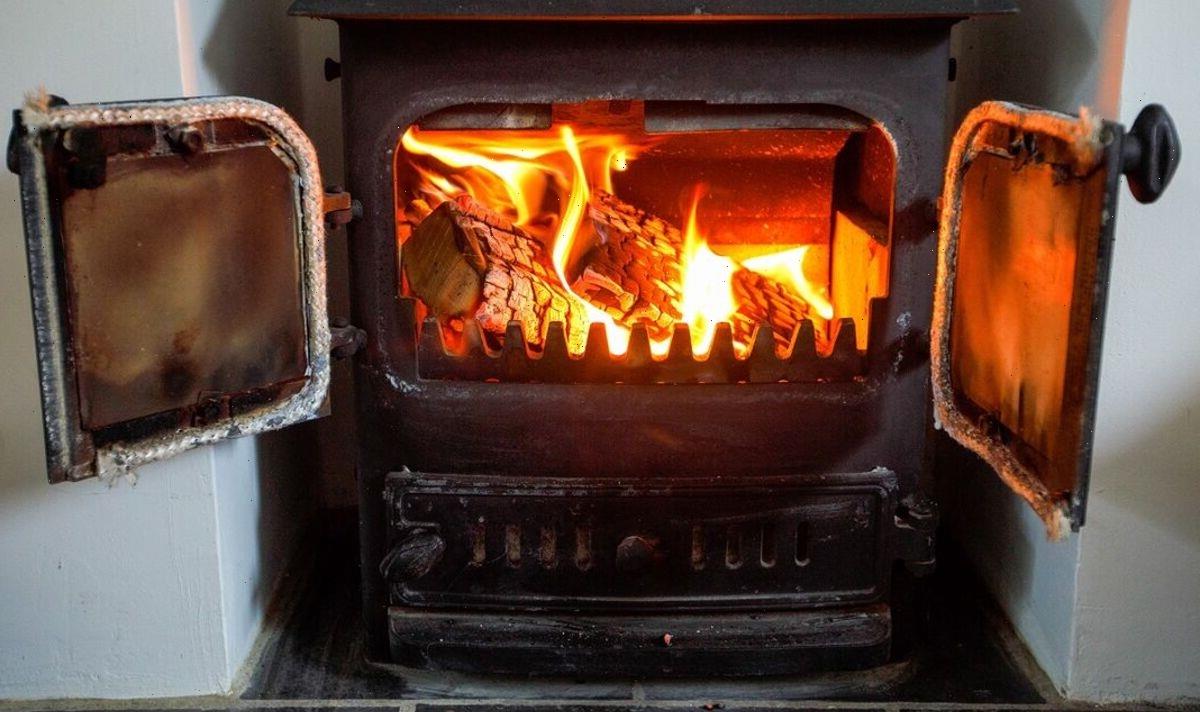UK inflation dips as food and energy costs remain high
We use your sign-up to provide content in ways you’ve consented to and to improve our understanding of you. This may include adverts from us and 3rd parties based on our understanding. You can unsubscribe at any time. More info
Demand has risen sharply for solid fuel heating as Britons turn to log burners to cope with soaring bills, amid a crippling energy crisis. As the country has plunged into a freezing winter with temperatures far below zero, ice and snowfall, households choose to install wood-burning stoves as an alternative heating option, hoping to save some money.
Bruce Allen, chief executive officer for Hetas, a non-profit working on wood burning and biomass appliances said the firm has “seen unprecedented demand for solid fuel heating this winter”.
He told This is Money: “Demand has reached such a point that some of our approved chimney sweeps and heating installers are having to confirm bookings well into 2023 in order to keep up with the number of enquiries they are receiving.”
In some cases, burning wood can be cheaper than central heating. Bruce Allen said that seasoned logs are “the cheapest domestic heating fuel after kerosene, costing homeowners 10.37p per kWh versus 12.81p per kW for mains gas and 39.21p per kW for electricity”.
But an expert has warned that people using wood-burning appliances should be careful to not expose themselves to harmful pollutants which could increase the chances of catching diseases.


According to Professor Catherine Noakes, a mechanical engineer at the University of Leeds, doing so creates a lack of adequate ventilation, which could raise the risks of spreading Covid and flu, while also increasing the risk of dampness and mould, which can trigger a respiratory infection.
Prof Noakes, who helped shape NHS and government policies during the pandemic through her role on the SAGE committee, urged Britons to open up their windows at “intermittent” periods and to turn on the extractor fan after using the log burner.
Prof Noakes said: “I have a real concern that some of the things people are doing actually have a compounding effect.
“So if you are at home, for example, and you don’t turn the heating on and you keep the window shut, not only have you reduced ventilation, but you’ve also created a condition where you might get more damp and mould, which has a knock-on effect of impacting your health.”
Meanwhile, householders are also being urged to plug gaps in doors and windows as a way of easing the sting of sky-high energy bills this winter.
People were also advised to tweak their boiler temperatures and switch devices off at the wall, as part of a new multimillion pound public information campaign featuring tips on “simple, low or no-cost actions” to bring about “big savings”.
The Government launched the It All Adds Up initiative on Saturday, to raise awareness of “straightforward” measures people can take to cut their bills over the colder months.
These include reducing boiler flow temperatures from 75C to 60C and turning off appliances at the plug, which ministers say could save about £170 combined each year.
Households are also being urged to cut heating loss by putting draught excluders around doors or adding clear film across windows, with the potential to save a further £60 annually.
DON’T MISS: Brilliant heating hack using a tea light leaves room ‘like a sauna’
Pensioner, 73, struggles to heat home as ‘crippling’ costs soar
£3.25 heating hack to make your home cosy

The £18 million initiative will feature adverts across a number of platforms, with a television broadcast due to be rolled out in the coming weeks.
It represents a break from the position of the previous administration, when an attempt to introduce a similar public information campaign was blocked over concerns the energy saving measures were too “nanny state”.
Business Secretary Grant Shapps said it would be hard for him to “second guess other people’s motivations” when asked why the move was frozen out during Liz Truss’s tenure.
He told BBC Breakfast: “All I can tell you is I think it’s a good idea. She did, and the Government has put its hand in the pocket and paid for all of this energy support, which is, as I say, an enormous package. This is something we can do on top.”
Source: Read Full Article
